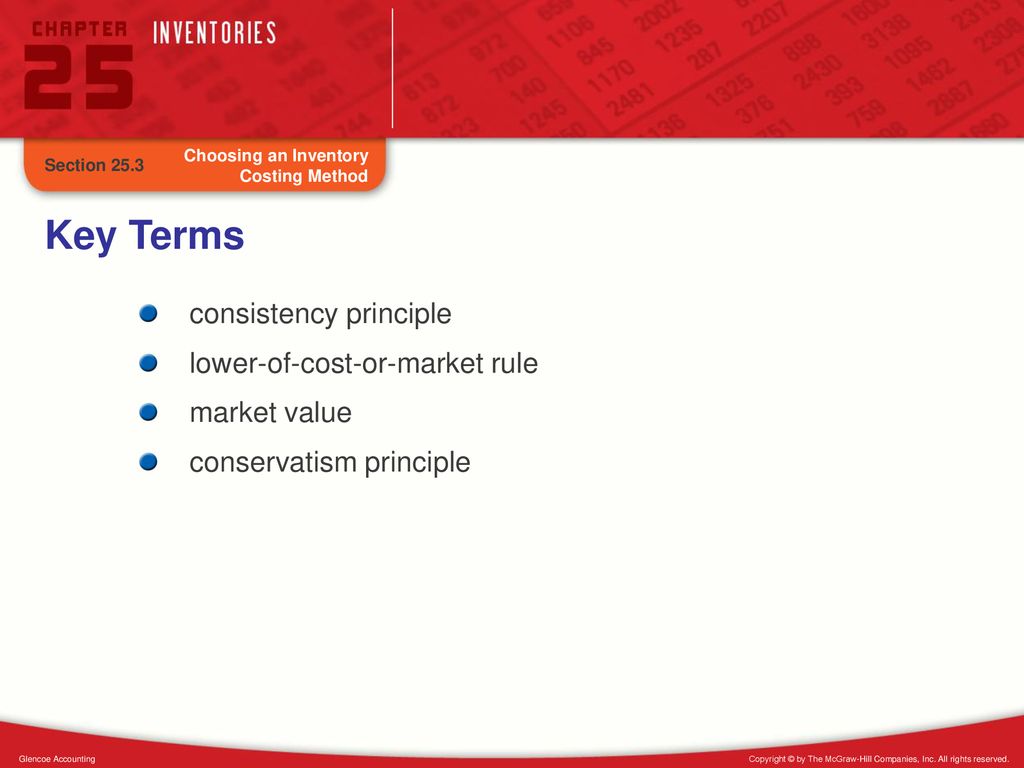
Going Concern Concept – states that companies need to be treated as if they are going to continue to exist. This means that we must assume the company isn’t going to be dissolved or declare bankruptcy unless we have evidence to the contrary. Thus, we should assume that there will be another accounting period in the future.

What is your current financial priority?
Ed’s capitalizes these licenses and amortizes them in the years he doesn’t need a deduction and he expenses them in the years that he needs a tax deduction. This violates the consistency principle because Ed uses different accounting treatments for the same or similar transactions over time. For example, if the performance is based on Net Sales, management might not recognize revenues by using the same accounting policies.
Learn At Your Own Pace With Our Free Courses
- In the last few years, Bob’s has become quite profitable and Bob’s accountant suggests that Bob switch to the LIFO inventory system to minimize taxable income.
- Companies are allowed to switch accounting methods if the company can demonstrate why the new method is better than the old method.
- The four basic principles of GAAP include the Revenue Recognition Principle, Matching Principle, Full Disclosure Principle, and Cost Principle.
- The conservatism principle says if there is doubt between two alternatives, the accountant should opt for the one that reports a lesser asset amount or a greater liability amount, and a lesser amount of net income.
- With the ability to portray a company’s fiscal standing in a favorable light, investors could be easily misled.
- When every company follows the same framework and rules, investors, creditors, and other financial statement users will have an easier time understanding the reports and making decisions based on them.
This is because such company applies both accounting estimate as well as its accounting policy consistently. By adhering to these principles, accountants and financial professionals uphold the highest financial reporting standards and contribute to various stakeholders’ trust and confidence in financial statements. This principle requires entities to use the same accounting methods and principles for similar transactions and events over time, promoting consistency and accuracy in financial reporting. The Principle of Regularity under GAAP mandates strict adherence to established accounting rules and regulations.
Create a Free Account and Ask Any Financial Question
In the case of rules-based methods like GAAP, complex rules can cause unnecessary complications in the preparation of financial statements. These critics claim having strict rules means that companies must spend an unfair amount of their resources to comply with industry standards. Generally accepted accounting principles (GAAP) are uniform accounting principles for private companies and nonprofits in the U.S.
Fundamental Accounting Concepts and Constraints
All of this can be explained by considering the transaction that was included in the discussion on accruals. This was that Andrea agrees to buy goods from Brian on 25 January and Brian agrees that Andrea can wait until 25 March to pay for the goods. Candidates in FA2 will not be required to decide on an appropriate cut off level for materiality. This is a more advanced issue, which requires the exercise of professional judgment. Under the conservatism principle, if there is uncertainty about incurring a loss, you should tend toward recording the loss.
Can you explain the Principle of Continuity and its impact on asset valuation?
Valuation and recording methods for these items will directly affect the balance sheet and profit and loss statements. In fact, it will eventually affect all financial statements including cash flow and statement of equity. Some assets directly affecting profits such as inventory will require a uniform valuation treatment. The consistency principle of accounting is not a standalone practice; it is used in conjunction with other accounting principles.
Without a consistent accounting approach these comparisons cannot provide useful information. The purpose of accounting principles is to establish the framework for how financial accounting is recorded and reported on financial statements. When every company follows the same framework and rules, investors, creditors, and other financial statement users will have an easier time understanding the reports and making decisions based on them. Apart from recording, the other half of accounting practice summarizing is equally important too.
GAAP and IFRS principles ensure financial statement consistency, reliability, and comparability. IFRS (International Financial Reporting Standards) aims for similar what are operating expenses in accounting goals but is used internationally. Both frameworks guide how financial transactions are recorded and reported but they differ in their approaches and standards.
Completeness is ensured by the materiality principle, as all material transactions should be accounted for in the financial statements. As you can see, the consistency principle is intended to keep financial statements similar and comparable. If companies changed accounting methods for valuing inventory every single year, investors and creditors wouldn’t be able to compare the company’s financial performance or financial position year after year. They would have to recalculate everything to make the financial statements equivalent to each other. Another benefit of the consistency principle is that it promotes accuracy and reliability in financial reporting. The Principle of Consistency is a pivotal element in Generally Accepted Accounting Principles (GAAP).


 Italiano
Italiano
Leave a Reply